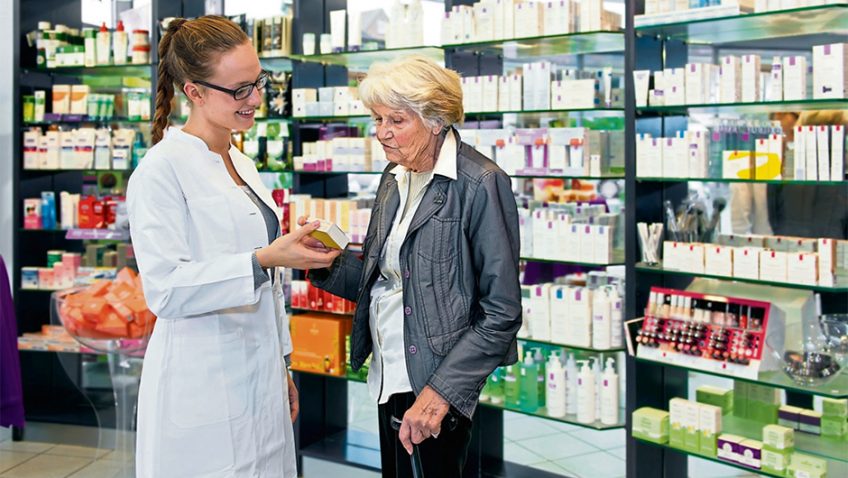Ade Williams is the 2017 UK Community Pharmacist and is the Inaugural Royal Pharmaceutical Society Patient Champion for 2017. Here he explains to MT what your community pharmacist can do for you.
The NHS has launched a national campaign to encourage people to use their community pharmacy as their first port of call for any minor illnesses or health advice, rather than going to the GP or to A&E. At a time when we hear daily of the pressures on the NHS to save more money, of long delays in getting GP appointments and with reported shortages of trained GPs and other NHS staff, could this just be a cost-saving exercise or a short-term fix?
Pharmacy first
Currently, there are approximately 18 million GP appointments and 2.1 million visits to A&E every year for conditions that a visit to a local community pharmacy could have resolved. The cost of those visits is the equivalent of more than 220,000 hip replacements or 880,000 cataract operations.
Most people will be familiar with the role of pharmacies in the supply of their medicines. So are we really qualified to diagnose or become the ‘first port of call’ when you feel unwell?
There are some common misconceptions about the role of a pharmacist and the level of training we receive. Pharmacists are the third largest healthcare professionals in the NHS after nurses and doctors. We are highly trusted and well trained; we undertake five years initial training before registration, starting with a four year Master’s degree course in Pharmacy. This teaches us about the origin, preparation and formulation of medicines alongside the actions and uses of such medicines. We also learn about the human body, disease, prevention and treatment. Our training doesn’t end after the initial five years but continues throughout our career, as we keep up to date with new developments in health and medicines.
Community pharmacists are able to give you advice on how to use your medicines, highlight any possible side effects and talk to you about any concerns you may have, making sure that you are taking your medication safely. We offer this advice on prescribed medicines as well as medicines sold under our supervision. In spite of the recent government pharmacy funding cuts that have put many independent pharmacies at risk of closure, pharmacies continue to prioritise the needs of their patients. We will always refer you to a GP or A&E if that is where you need to be to get the appropriate care required.
As you would expect from the NHS’s most accessible frontline professionals, we are trained on how to communicate effectively and how to work with people to improve their health and wellbeing. This is person-centred care, treating everyone in a way best suited to his or her needs. At a time when face to face access to see a health care professional can be problematic, community pharmacies can help.
Freeing up GPs
This campaign is not seeking to replace GPs but to free them and the wider NHS network to manage the more complex and urgent needs of an ageing population. Community Pharmacies offer a vision to NHS policy makers. By viewing us as a cost-effective, locally responsive asset, we can do more, even in times of financial constraints. We see our patients regularly, we know them well and we have the expertise to do more for them. With many pharmacists now working in GP surgeries and at A&E, our unique expertise and skills are being well recognised. The challenge is getting everyone to know what their local pharmacist and the team can do for them, and what services we offer.
Keeping community pharmacies locally accessible and empowered is important to ensure that we do not lose something that is valuable and prevent another chapter in that rather too familiar NHS narrative of missed opportunities and waste.
So the next time you feel unwell or have a question about your health and/or medicines, speak to the experts in your local pharmacy.


